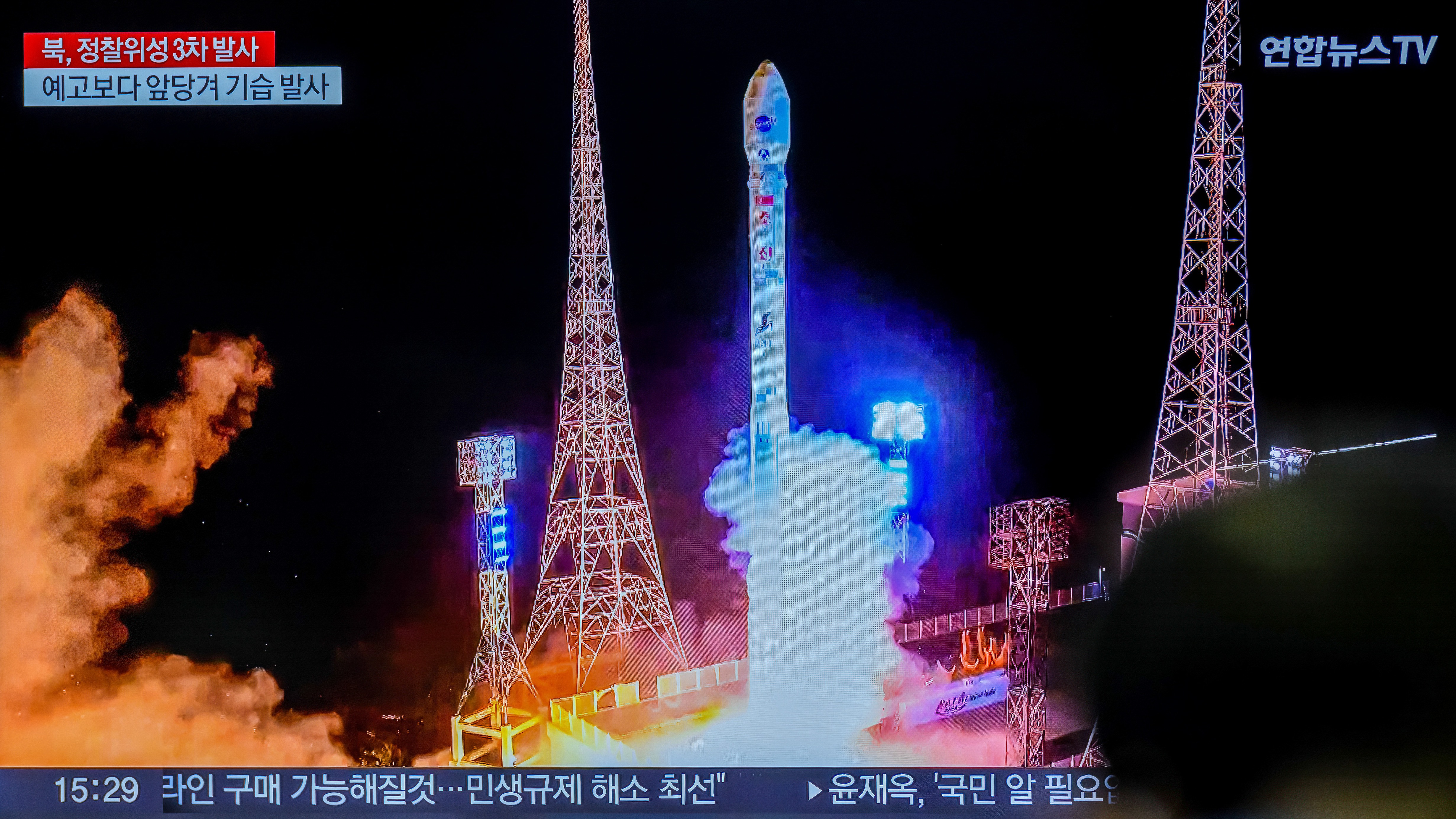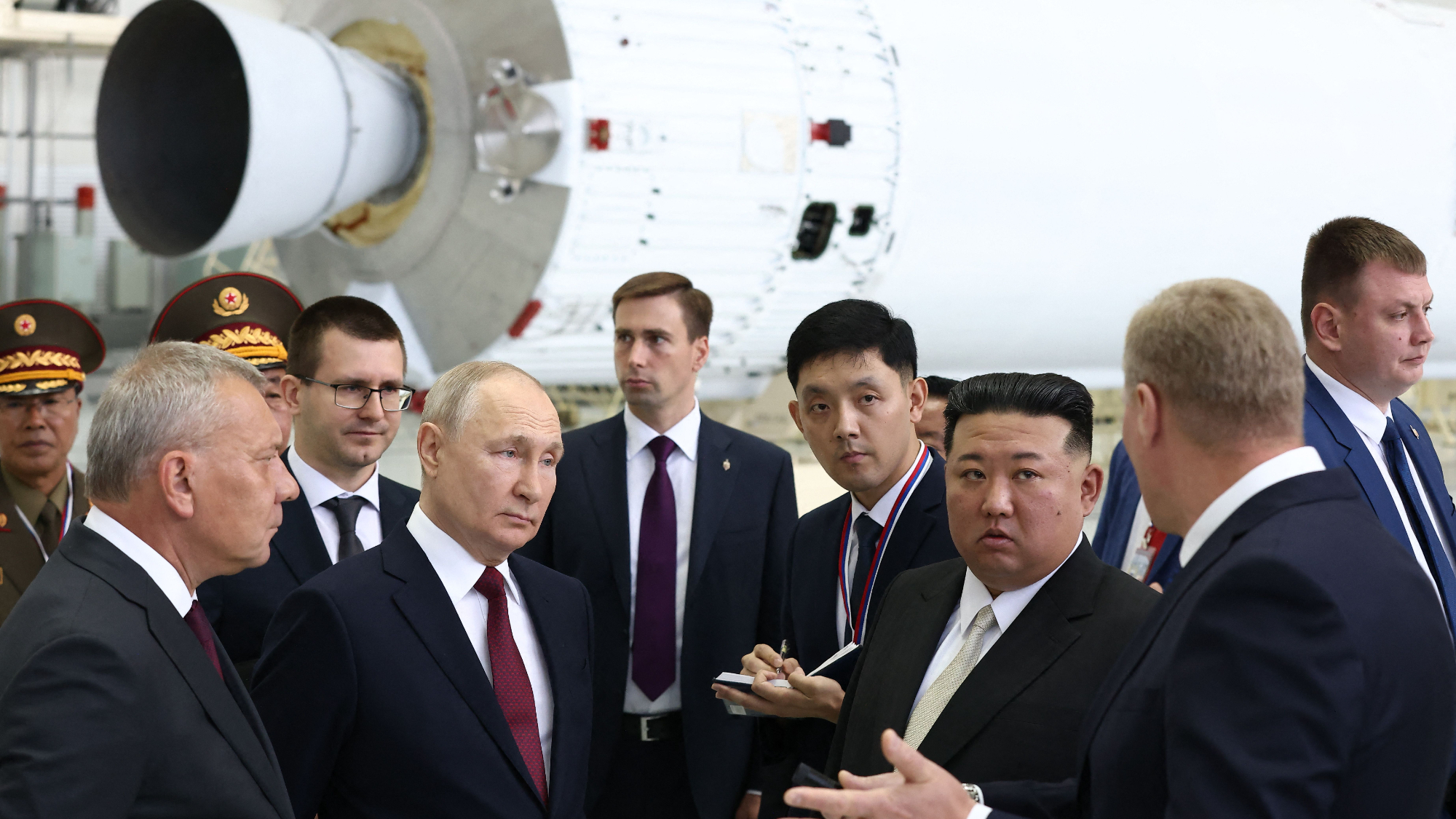North Korea rocket explodes during spy satellite launch, and meteor hunters caught it on camera: report
The explosion was caught on a South Korean meteor camera.
The first stage of a North Korean rocket apparently exploded Tuesday (Nov. 21) during a purported spy satellite launch, a new video suggests.
A camera at South Korea's Yonsei University, usually used for tracking meteors or shooting stars, showed the first stage of the North Korean Chollima-1 rocket appearing to erupt and spread debris, Reuters reported Friday (Nov. 24).
"This time they appear to have detonated the first stage propellant in mid-air," Byun Yong-Ik, an astronomy professor at Yonsei University, told Reuters. "This kind of measure was not seen in the previous launch attempts, and it could have been an effort to prevent South Korean and U.S. authorities from recovering the (rocket), as it is equipped with a new engine."
The activity was classified as unusual by North Korean rocket experts in the report, given that countries typically allow rocket stages to fall naturally into Earth's atmosphere — absent the ability to land the first stage, like SpaceX or Blue Origin does. North Korea has reported an ability to self-destruct rockets on previous launches, too.
Related: North Korea claims it sent a spy satellite to orbit for 1st time: report

The U.S. Space Force has cataloged an object in orbit matching the trajectory of the launch, suggesting the spy satellite is indeed in space, astronomer Jonathan McDowell posted Tuesday on X, formerly Twitter. McDowell, who is based at the Harvard-Smithsonian Center for Astrophysics, also tracks worldwide space launches, landings and re-entries.
Following North Korea's claims of the successful spy satellite launch on Tuesday, senior U.S. officials and the White House condemned the activity; the American security community has said the technologies used for the rocket are similar to those for the nation's intercontinental ballistic missile program.
Get the Space.com Newsletter
Breaking space news, the latest updates on rocket launches, skywatching events and more!
For example, officials with the White House released a statement saying the launch on Tuesday was "a brazen violation of multiple UN (United Nations) Security Council resolutions, raises tensions, and risks destabilizing the security situation in the region and beyond."

Previously, senior U.S. officials have also raised concerns of North Korea's closer ties with Russia in recent months, including a joint meeting of North Korean leader Kim Jong Un and Russian President Vladimir Putin in September concerning sharing spaceflight and rocket technologies. (North Korea denied Russia provided assistance for Tuesday's launch, however, according to media reports.)
Russia has been cut off from most international space activities since its unsanctioned invasion of Ukraine in February 2022, lessening opportunities for its space companies. North Korea, meanwhile, has been a communist state for 80 years. Its economy is controlled by the state and its citizens are said to lack basic food and services, according to Britannica.
North Korea's nuclear program ambitions in the last decade have drawn concerns from the North Atlantic Treaty Organisation (NATO) that includes the U.S., so much so that the U.S. and South Korea have done collaborative military exercises in the region lately. (South Korea is also a signatory to NASA's Artemis Accords, a coalition of dozens of nations that is in part moon-focused and in part a framework for peaceful international space exploration.)
The launch by North Korea is its third try to send a spy satellite to orbit in recent months. The first two attempts were confirmed failures, and the South Korean government has said it found debris associated with at least one of the launches. South Korea is also searching for debris for Tuesday's launch, Reuters said.
South Korea is said to be planning its own first spy satellite for launch later in November, on a SpaceX Falcon 9 rocket launching from Vandenberg Space Force Base.
Join our Space Forums to keep talking space on the latest missions, night sky and more! And if you have a news tip, correction or comment, let us know at: community@space.com.

Elizabeth Howell (she/her), Ph.D., was a staff writer in the spaceflight channel between 2022 and 2024 specializing in Canadian space news. She was contributing writer for Space.com for 10 years from 2012 to 2024. Elizabeth's reporting includes multiple exclusives with the White House, leading world coverage about a lost-and-found space tomato on the International Space Station, witnessing five human spaceflight launches on two continents, flying parabolic, working inside a spacesuit, and participating in a simulated Mars mission. Her latest book, "Why Am I Taller?" (ECW Press, 2022) is co-written with astronaut Dave Williams.









